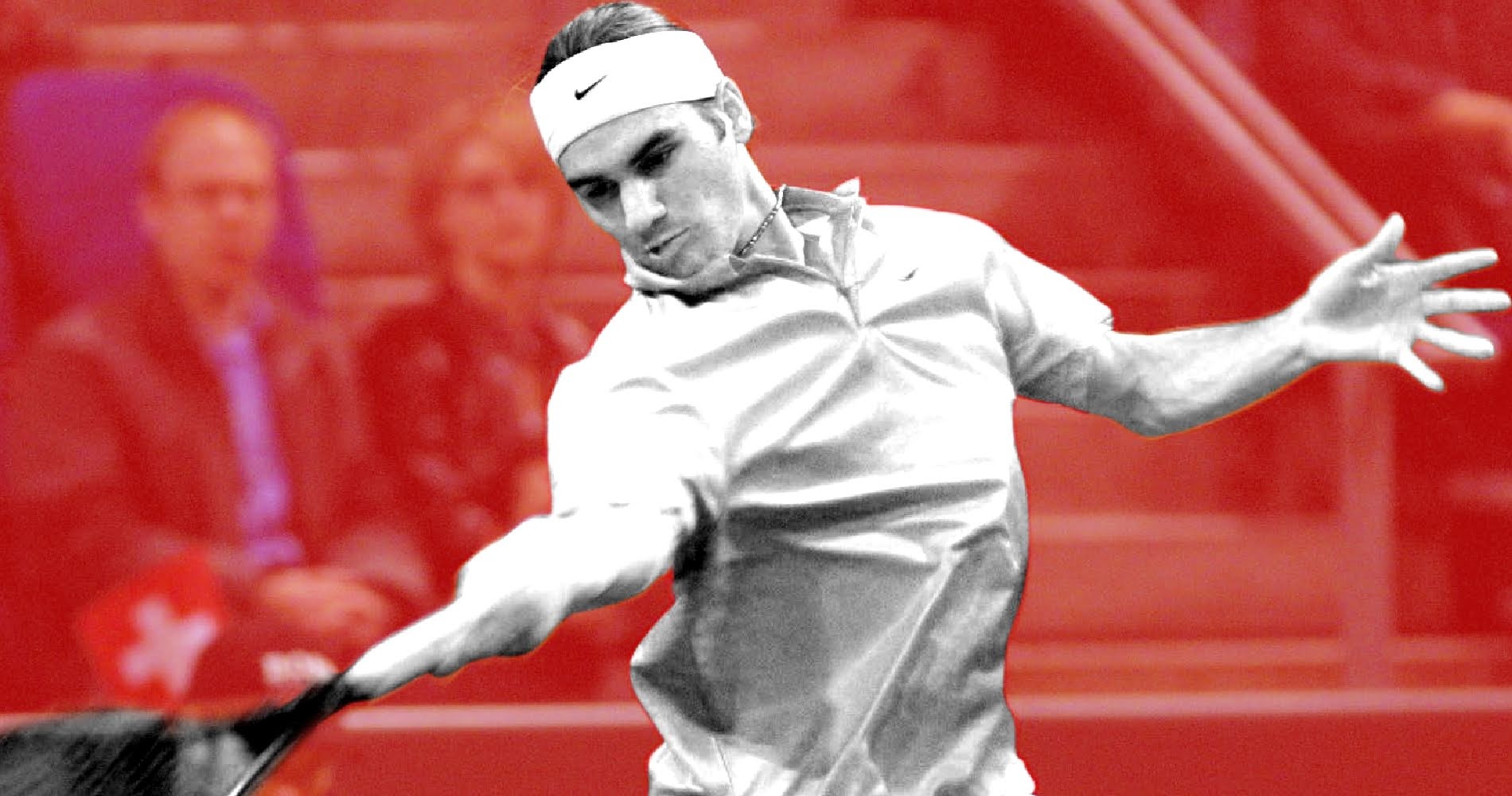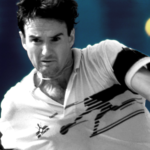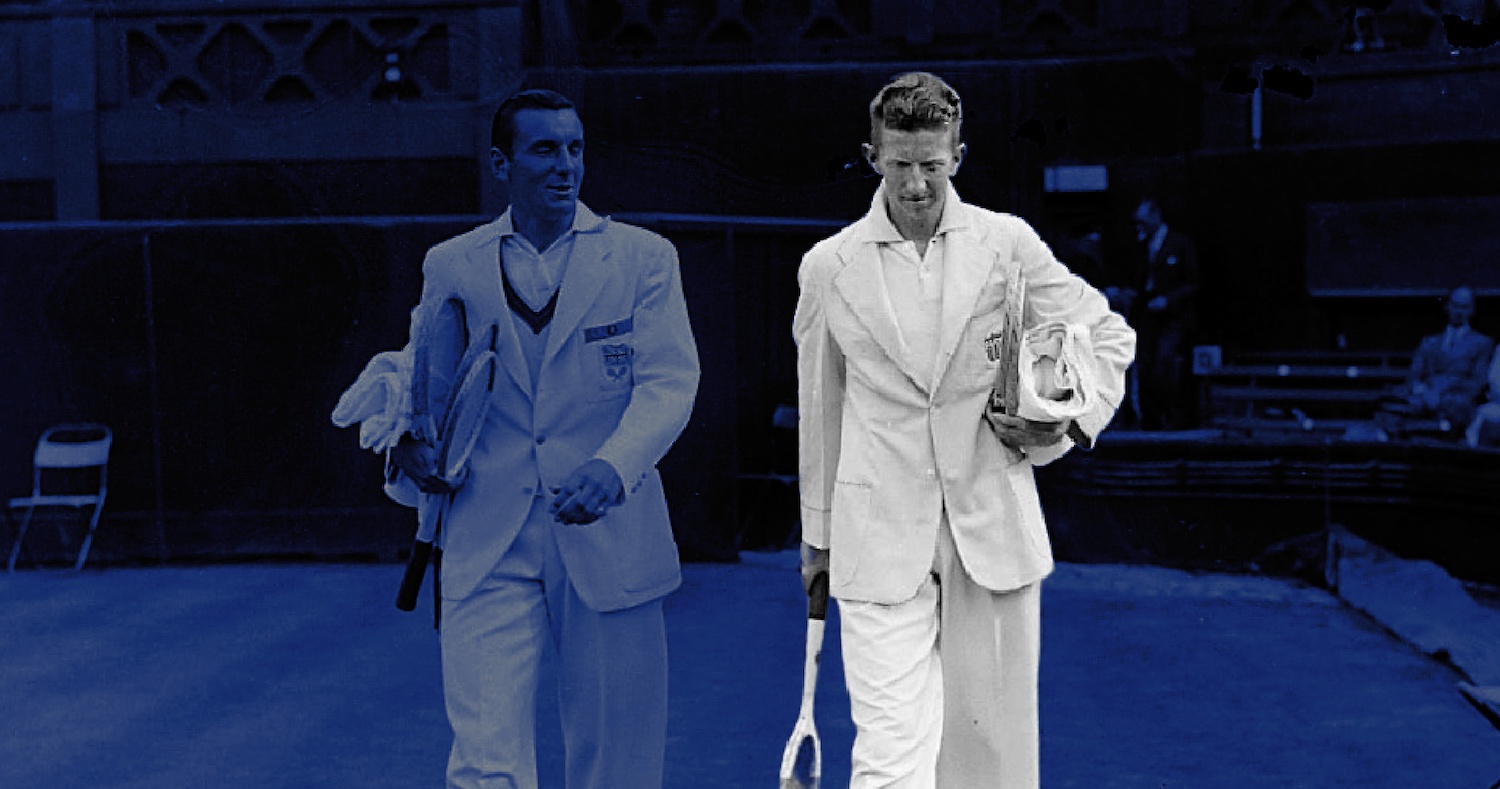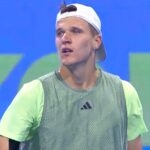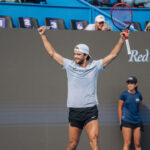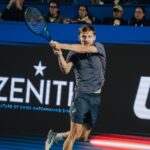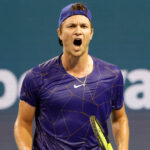September 27, 2000: The day a tearful Roger Federer was denied Olympic bronze by Arnaud Di Pasquale
Every day, Tennis Majors takes you back to one of the most iconic moments in tennis history. On September 27, 2000, Arnaud Di Pasquale beat a crying Roger Federer to win the bronze medal at the Sydney Olympics
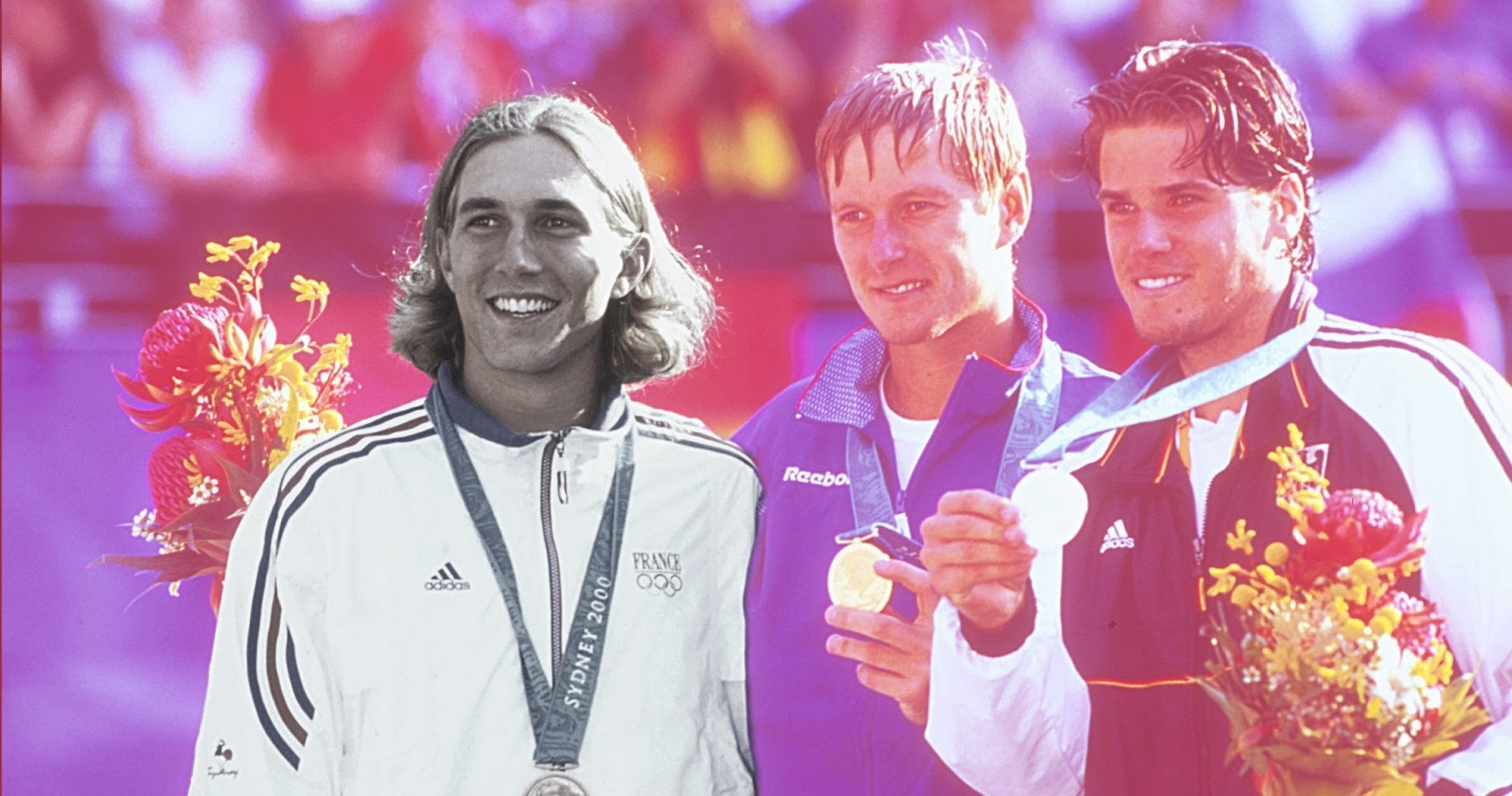 DI Pasquale OTD 09_27 (1)
DI Pasquale OTD 09_27 (1)
What happened exactly on that day?
On this day, September 27, 2000, Frenchman Arnaud Di Pasquale achieved the greatest result of his career, clinching the bronze medal at the Sydney Olympic Games after beating Roger Federer 7-6, 6-7, 6-3. For the young Swiss, it was a big disappointment; it was his first opportunity to obtain a major result at one of the biggest tournaments in the world.
The players involved: Roger Federer and Arnaud Di Pasquale
- Roger Federer: the rising star of men’s tennis
Roger Federer was born in 1981. After he finished 1998 as the world No 1 junior, Federer performed well in his first professional outings. In his five first ATP Tour appearances from 1998 to 1999, he reached quarter-finals three times – in Toulouse, Marseille, and Rotterdam. His incredible skills amazed the tennis world, and soon he was touted as a future world No 1. In 2000, Federer reached his first final on the ATP Tour in Marseille (defeated by fellow Swiss Marc Rosset 2-6, 6-3, 7-6) and by September. he was already No 43 in the ATP rankings.
- Arnaud Di Pasquale: Frenchman ranked No 62 in the world
Arnaud Di Pasquale was born in 1979. He reached his first final on the ATP Tour in 1998 in Bucharest (lost to Francisco Clavet 6-4, 2-6, 6-2) and the same year he broke into the top 100, finishing the season as world No 81. In 1999, he made his way to the fourth round at Roland-Garros (defeated by eventual runner-up Andrei Medvedev 7-6, 7-6, 6-1), and in October, he claimed his first and only title in Palermo – where he beat Alberto Berasategui 6-1, 6-3 in the final.
The place: The Sydney Olympic Park Tennis Centre
The Sydney Olympic Park Tennis Center is a tennis and multi-purpose sports facility located within the Olympic Park in Sydney, Australia. It was built in 1999 and hosted the tennis events for the 2000 Summer Olympics. Its Centre Court, which would be later renamed the Ken Rosewall Arena, had a capacity of 10,500 spectators at the time.
The facts: Federer feels the pressure in the deciding set
On September 26, 2000, before the bronze medal match, world No 62 Di Pasquale and world No 36 Federer were in a very different states of mind. The Frenchman was in stellar form; in the round of 16, he had upset world No 4 Magnus Norman 7-6, 7-6 before playing flawless tennis to defeat world No 12 Juan Carlos Ferrero 6-2, 6-1 in the quarter-finals.
Having been stopped by world No 8 Yevgeny Kafelnikov 6-4, 6-4 in the semi-finals, Di Pasquale approached this last match with a positive mindset. Meanwhile, Federer had been left shattered after his 6-3, 6-2 loss to Tommy Haas. Later, the Swiss legend would reflect on that particular match.
“In 2000 I was really sad after losing to Haas at the Sydney Olympics. When I lost, I went into a corner like a kid. I could not stop crying. That loss marked me. The day after I had to play for the bronze against Di Pasquale, but I was crying and crying.”
In the semis, Di Pasquale won a very tight first set 7-6. In the second set, the Frenchman obtained a match point that was saved by Federer – who eventually forced a decider after taking the second 7-6.
In the final set, even though Di Pasquale called the physio because of a sore thigh, Federer was overwhelmed by the pressure of the occasion. Several times, he could be seen throwing and kicking his racket, and he never managed to to seize any positive momentum. Eventually, Di Pasquale prevailed 6-3 for an unexpected bronze medal.
What next? Di Pasquale hampered by injuries while Federer begins G.O.A.T. journey
Di Pasquale’s career would be hampered by repeated injuries. He would reach the fourth round in Paris once again in 2002, but his body wouldn’t allow him to maximize his potential. He would eventually retire from the game in 2007.
For Federer, it would take him almost three years before he could master his nerves. In 2003, he would claim the first of his 20 Grand Slam titles at Wimbledon, defeating Mark Philippoussis in the final. And in 2004, he would start the longest uninterrupted reign in tennis history, sitting atop the ATP rankings for 237 weeks. Although he would obtain a gold medal in doubles at the 2008 Beijing Games (partnering Stan Wawrinka), his best effort in singles would remain a silver medal claimed at the 2012 Olympics in London.
